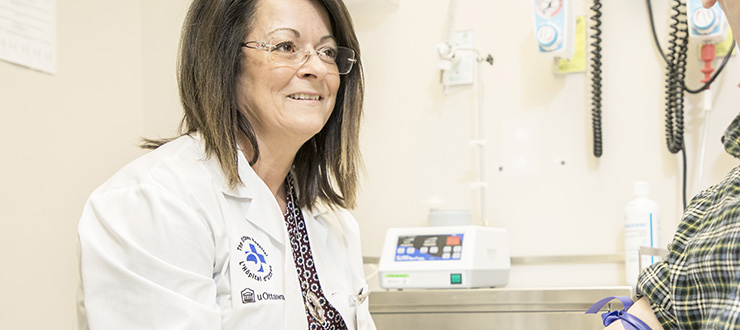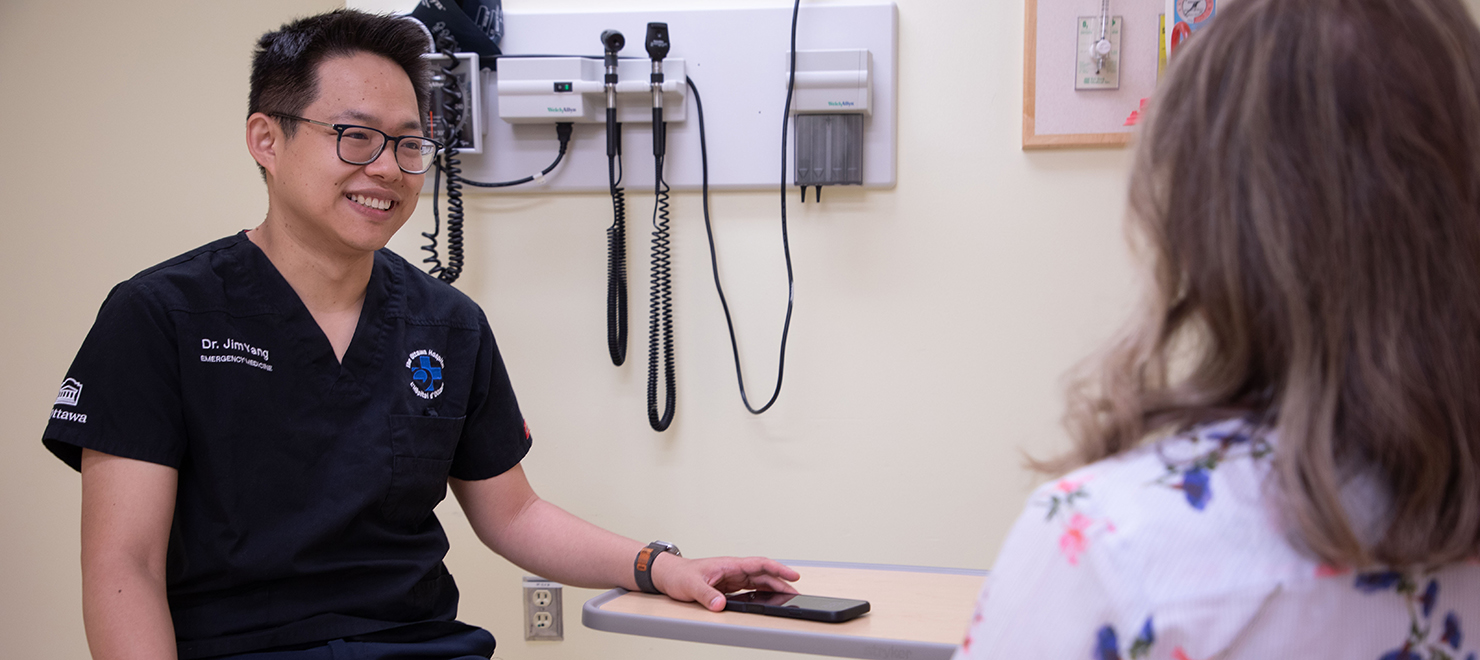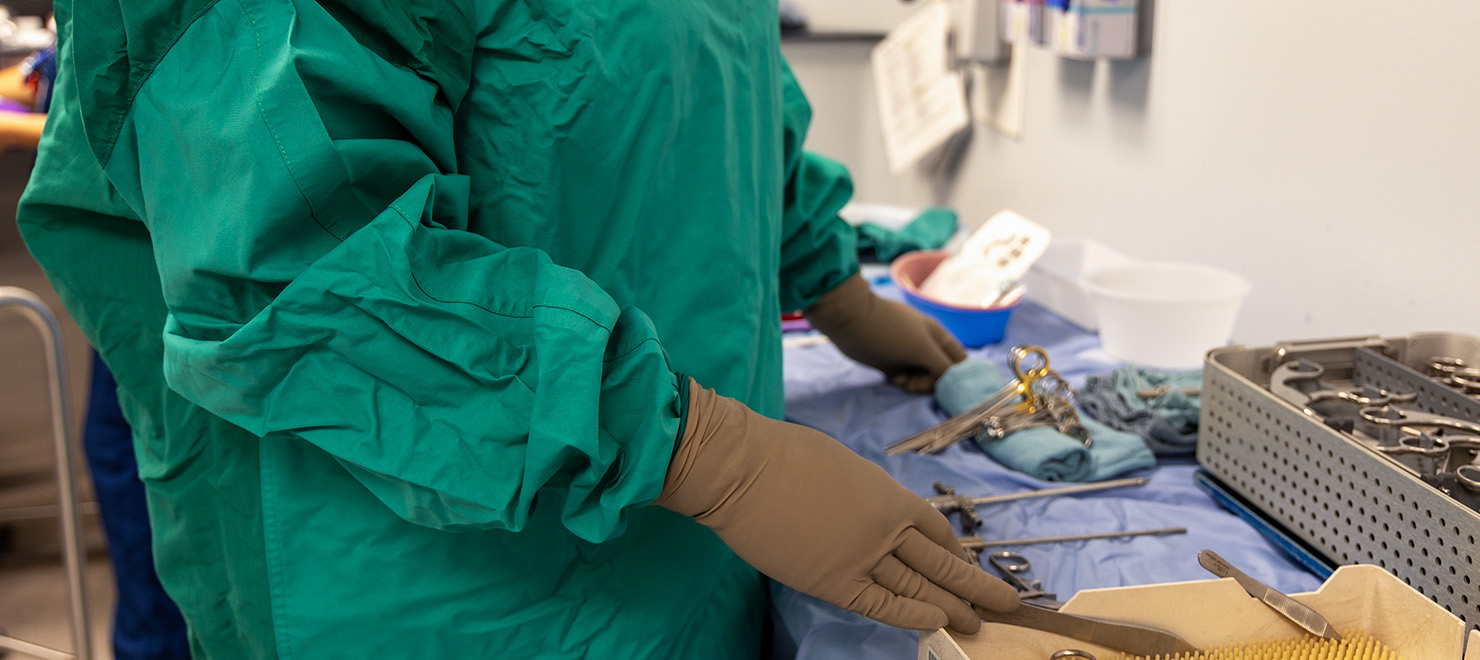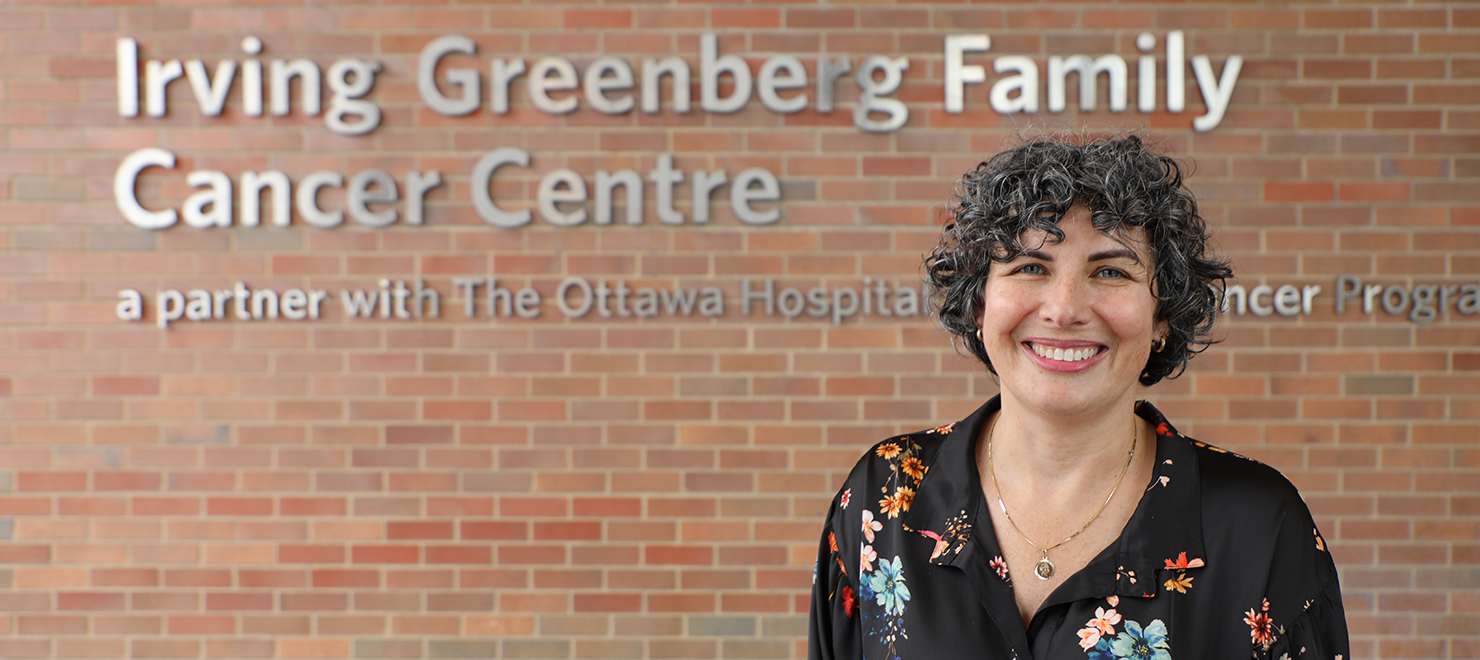
Clinical Research Coordinator Nancy Tremblay takes blood samples from a patient as part of the clinical trial.
When John Henry spent three weeks cycling across Great Britain last summer, he didn’t need to take along a three-week supply of antiretroviral pills for HIV. Instead, Henry receives an injection once every eight weeks.
“Replacing daily pills with something that is injected and slowly released into the body – it amazes me that it’s possible, but it works,” said Henry. “You’re free from pills, which is great if you go on vacation. And between the eight weeks, you actually forget that you have it.”

Dr. Jonathan Angel, Head of Infectious Diseases at The Ottawa Hospital and Associate Professor of Medicine at the University of Ottawa, led a study to find if an injection was as effective as a pill for controlling HIV.
For Henry, taking a pill is a daily reminder that he has the human immunodeficiency virus (HIV), which breaks down the immune system until the person can’t fight off infections or diseases. Two decades ago, a diagnosis of HIV was a death sentence. While there is still no cure, taking one pill a day can suppress the virus. If patients stop taking it, the virus can resurface in their body.
Henry is part of an international study, co-authored by Dr. Jonathan Angel, that showed how an injection of the long-lasting forms of antiretroviral drugs every four or eight weeks could suppress viral growth just as well as a daily pill. The trial involved nearly 300 patients across 50 sites in five countries. In Canada, only The Ottawa Hospital and one site in Montreal took part in the clinical trial. The trial targeted people who had not taken any antiretroviral medication. Henry fit this criteria, since he had been recently diagnosed when the trial opened in June 2014.
Henry was randomized to receive an injection of antiretroviral therapy every eight weeks. Chad Raymond was randomized to receive the treatment every four weeks.
“I got a firm diagnosis, two months before taking treatment,” said Raymond, who began taking part in the trial in October 2014. “The idea of doing injections appealed to me because of the infrequency of it. I was happy to get away from doing something on a daily basis, as I worried about missing a dose. So an injection once every month was more appealing.”
Treatment for HIV has improved greatly over the past couple of decades.
“Years ago, a person had to take a handful of pills two to three times a day, and there were lots of side effects,” said Nancy Tremblay, Clinical Research Coordinator for the trial. “That contributed to a lot of non-compliance, as some patients couldn’t tolerate the medication. So we’ve progressed from that to one pill, once a day. It’s very effective with very few side effects, if any. And now injectables offer another option.”
Patients receive two separate intramuscular injections of the antiretroviral drugs cabotegravir and rilpivirine in their buttocks. Tremblay explained that the drugs are released slowly into the patient’s system and last a full month or two months, depending on which schedule they are on.
“The delivery method is not for everybody,” said Dr. Angel, Head of Infectious Diseases at The Ottawa Hospital and Associate Professor of Medicine at the University of Ottawa. “The big thing is it provides another option for people who have a physical or psychological aversion to taking pills.”
People taking part in the study will still have access to the drug after the study is completed.
“This is a drug they have to take for the rest of their lives,” said Tremblay. “When there is a study, the pharmaceutical company has a responsibility to keep treating the patients, if the treatment is working.”
Dr. Angel said the challenge, once the injection form is approved by Health Canada, is who will administer the drug.
“Coming into a clinic to get your prescribed medication isn’t the answer,” he said. “It’s fine when it’s during the trial, but afterwards, it is still not clear who will be trained to give the injections and where will they be done: doctors in their offices, pharmacists, or nurses visiting patients in their homes. While it is still a year or two before approval and they are commercially available, there are unique issues that will need to be sorted out.”
Until then, patients at The Ottawa Hospital, like Henry and Raymond, are contributing to and benefiting from this research. Many more patients world-wide could benefit if the drug is approved.
The study was funded by ViiV Healthcare and Janssen R&D. Community support for The Ottawa Hospital is also crucial for all research studies, in particular research into HIV and gay men’s health.

Support patient care and research at
The Ottawa Hospital
You might also like…
Less time charting means more time with patients: How The Ottawa Hospital is using AI to support patient care
“I’m seeing and treating more patients.” Find out how DAX Copilot, a powerful AI assistant, is helping our physicians cut down on paperwork, improve their own well-being and spend more time with patients.
New reusable surgical gowns a step towards greener operating rooms
The Ottawa Hospital is finding safe, innovative ways to reduce medical waste in its operating rooms by using more environmentally sustainable products.
By thinking differently, this research team is improving the lives of people with cancer
Taking a different approach to clinical trials, the REthinking Clinical Trials (REaCT) program aims to answer some of the most important and practical questions that affect both patients with cancer and our health-care system. Find out what sets REaCT apart and makes the program so special to participants like Beth.
“Crash testers”: Preparing our health-care teams for real-life emergencies
Swapping patients for manikins, our Simulation Patient Safety Program recreates medical emergencies right in our hospital, allowing our care teams to “crash test” their responses to cardiac arrests, respiratory failures, mass casualty events and more. Dive into this Q&A for a closer look at how this training program enhances patient safety and quality of care.
The place to be: The Ottawa Hospital recognized as one of Canada’s most admired corporate cultures
The Ottawa Hospital (TOH) has been named one of Canada’s most admired corporate cultures. Guided by compassion and commitment to patient care, TOH has developed a workplace culture that inspires confidence and trust in our employees, patients and family members.
2SLGBTQIA+ care at The Ottawa Hospital: A helpful guide
The Ottawa Hospital offers an array of services and resources to help meet the specific care needs of the 2SLGBTQIA+ community — including a provincial-first gender-affirming surgery clinic, a 24/7 care program for survivors of sexual assault and intimate partner violence, and a specialty clinic for medically complex patients seeking help on their transition journeys.


 To reset, hold the Ctrl key, then press 0.
To reset, hold the Ctrl key, then press 0.





